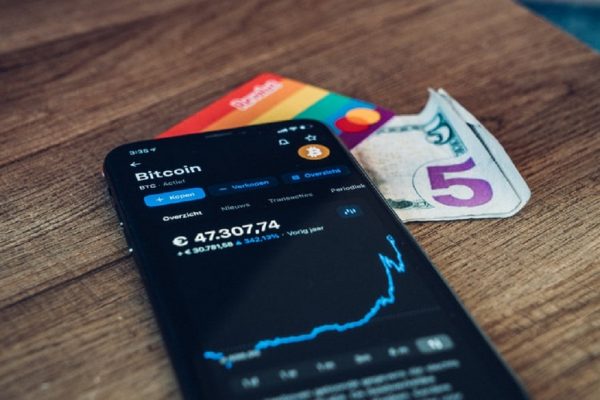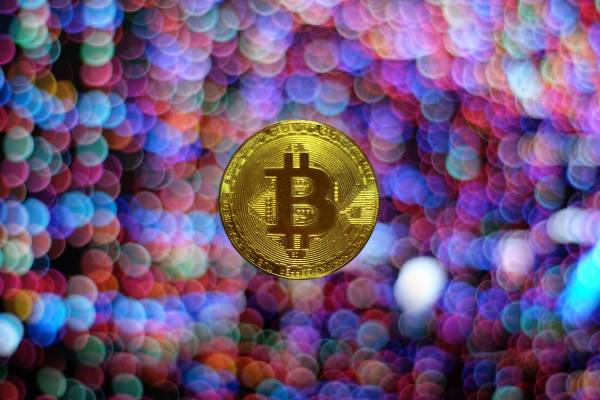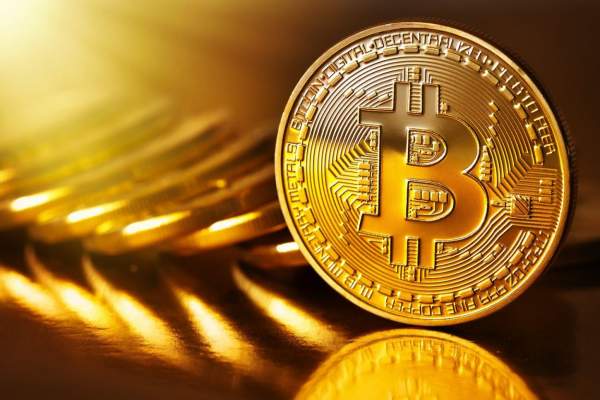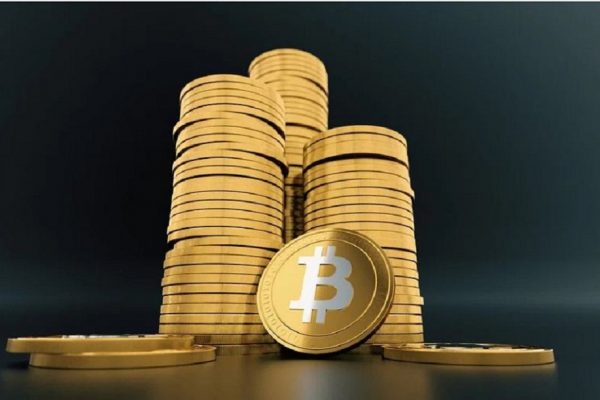Cash App is a peer-to-peer money transfer service that allows you to send and receive money, spend with a Visa debit card from your account, invest in stocks, as well as buy and sell bitcoin. Moreover, you do not need a bank account to use Cash App.
Cash App is ideal for beginning investors, cost-conscious investors, bitcoin users and mobile banking users. Cash App’s services are available in the US and the United Kingdom. Using the Cash App requires you open a Cash App account and must be at least 18 years old.
Cash App was created by Square, Inc. in 2013 and has its headquarters in San Francisco, California. It is supported on Android and iOS operating systems. Cash App is available in English and French. By 21st March 2021, Cash App had recorded 36 million active users.
Contents
How Cash App Works
The four main functionalities of Cash App are mobile banking, sending money, investing, and receiving money. This is how Cash App works:
Sending Money
When sending money, you will need the recipient’s phone number, email address, or $Cashtag (username). After filling these details, you will choose where you want to withdraw money from to make the payment. It can be from your connected bank account, Cash App balance, or linked card (credit or debit card; Cash App supports MasterCard, Visa, Discover, and American Express).
Receiving Money
Money received usually goes into your Cash App account first then, you can withdraw to a connected bank account or debit card. Alternatively, you can request a Cash Card to use your Cash App funds to purchase items in stores or online. Standard deposits show up in your bank account within 1-3 business days and are usually free. On the other hand, instant deposits happen instantly, but you will need to pay a 1.5% rush fee.
Cash App Investing
The Cash App investing functionality lets you invest in ETF, stocks, and bitcoin. However, to buy stocks, you will need to sign up with Cash App’s broker-dealer, Cash App Investing LLC. Since 2021, Cash App users can also send stock as a gift to other people. To use this feature, you must be 18 years old and be a U.S. resident.
How Does Cash App Investing Work?
To start investing with Cash App, you must first open a Cash App Investing account. This can be done directly through the Cash App. Once you have opened an account, you can start investing by searching for a company name or ticker symbol and selecting the amount of stock or ETF you want to buy. Cash App Investing allows you to invest as little as $1, making it a good option for first-time investors.
When you buy stocks or ETFs through Cash App Investing, the funds are taken from your Cash App balance. If you do not have enough funds in your balance, you can link a debit card to your account and the remaining funds will be charged to the card. Once you have purchased a stock or ETF, it will appear in your Cash App Investing portfolio. You can track the performance of your investments and sell stocks or ETFs at any time. When you sell stocks or ETFs, the proceeds are deposited into your Cash App balance.
Cash App Banking
If you want to use the Cash App Banking feature, you will need to order a Cash App card to unlock it. You can use this feature to receive your paycheck, tax returns, and other direct deposits.
Cash App Business Account
Cash App business accounts allows businesses such as online merchants to receive money from customers. With this account, merchants are able to create a payment link and share it with their customers on their websites. Customers can make payments without downloading the Cash App or creating an account.
Cash App Loan
The platform introduced a new Cash App loan feature to select 1000 users at the end of 2020. Cash App loans start at $20 to $200. The loan is for one month with a flat fee of 5%. Cash App loan will be expanded to more users in the future.
GCash App: Note that GCash App is different from the Cash App we have reviewed in this article.
Cash App Card
You can use Cash App Visa card (Cash Card) to make ATM withdrawals at any ATM. Cash Cards work at any ATM. You will be charged a $2 fee. Cash App reimburses ATM fees and ATM operator fees for customers who receive $300 or more via Cash App direct deposit each month.
Cash App Crypto
Cash App comes with a bitcoin wallet address that enable users to buy, sell, send or receive bitcoins on Cash App. Here’s how to buy bitcoins from Cash App.
Moreover, Cash App lets you send crypto gift cards to your family and friends.
Cash App Crypto Fees
Cash App charges fees when you buy or sell bitcoin. You will know the fees before you complete a transaction. There are two kinds of Cash App crypto fees for bitcoin transactions: a service fee for each transaction and an additional fee determined by price volatility across U.S. exchanges. Bitcoin purchases and sales made through Cash App are carried out at a mid-market rate that is determined by exchange prices.
How to Create a Cash App Account
First, download Cash App from the Apple App Store or Google App Store then, register with your phone number. A code will be sent to your number for instant verification. You will then need to choose your $Cashtag (username) by adding your email address and photo. You will get a custom link which people you know can use to send you money. Lastly, you will need to link your bank account or Cash Card to send and receive funds on Cash App.
Cash App Limit
With Cash App, you can send up to $1,000 in a month. ATM withdrawals are limited to $250 per withdrawal. However, it is possible to increase your limit by verifying your account. When verifying your account, you will need to provide personal details such as your name, the last four digits of your Social Security Number, and date of birth. Cash App’s spending limitations makes it unfriendly for businesses.
Cash App Supported Countries
Cash App has a location limitation. It is mainly for U.S. to U.S. transactions, but you can also send money to people in the United Kingdom. It supports USD and GBP currencies. Cash App is not yet available in Canada and Australia but plans to include these regions are underway.
Cash App Fees
Cash App does not charge any fee for opening or maintaining your account. General fees you should expect include the following:
| Type of Transaction | Fee |
|---|---|
| Personal Account Fees | |
| Sending and Receiving Money | Free |
| Instant Deposits | 0.5% to 1.75% of transfer amount (min $0.25) |
| ATM Withdrawals | $2.50 per transaction (plus possible ATM owner fee) |
| Cash for Business Fees | |
| Processing Fees | 2.75% per payment received |
| Investing Fees | |
| Stock and ETF Trading | Commission-free |
| Bitcoin Trading | Fee varies based on market conditions |
| Trading Activity Fee | $0.000145 per share sold |
Common Reasons for Cash App Account Closure
Cash App may close your account for a variety of reasons, including:
- Violation of Cash App’s Terms of Service: This includes engaging in fraudulent activities, using the platform for illegal purposes, or violating Cash App’s community guidelines.
- Suspicion of Suspicious or Unauthorized Activity: Cash App closely monitors accounts for any suspicious or unauthorized activity, such as fraudulent transactions or unauthorized access attempts.
- Failure to Verify Identity or Provide Required Documentation: Cash App may require users to verify their identities or provide specific documentation to ensure the security and compliance of their platform.
- Unusual or Excessive Account Activity: Cash App may interpret unusual or excessive account activity, such as a high volume of transactions or frequent large transfers, as suspicious.
If this happens to you, you need to contact Cash App customer support at 1-800-969-1940. Alternatively, you can write to them at Square, Inc., 1455 Market Street, Suite 600, MSC 211 San Francisco, CA 94103.
Cash App Customer Reviews
As of October 2023, Cash App has very poor customer reviews on Trustpilot, with an average rating of 1.2 stars from 4,047 customers. This is significantly lower than the average rating for other financial apps, such as PayPal (4.3 stars) and Venmo (4.1 stars). There are a number of reasons why Cash App may be receiving such poor reviews. Some of the most common complaints include difficult customer service, frozen accounts, and fraudulent transactions. Customers have also reported specific problems with instant transfers, ATM withdrawals, and Bitcoin transactions. Despite its poor customer reviews, Cash App remains a popular payment app, likely due to its low fees and ease of use.
Is Cash App Safe?
Yes. Cash App is safe to use as long as you follow instructions, keep people out of your account (by creating a password) and hold little money in your balance. Security locks including PIN entry, face ID, and touch ID verification protects Cash App payments. Additionally, all payments sent and received are encrypted. It is also best to be careful when sending money because you probably won’t be able to cancel payments made to another person’s Cash App account. It is advisable to check and re-check the $Cashtag, email address, and phone number before you send money.
Although Cash App is safe, there have been cases of fraud. It is therefore advisable to be careful and follow Cash App’s best practices to remain safe.
Cash App Alternatives
Depending on your needs, Cash App might not be the best money transfer service for you. You can choose to use the following alternatives:
- Venmo: With Venmo, you can also rush payments with a 1% fee, and it operates on weekends and holidays.
- Wise (formerly Transferwise): You can use Wise to send money from the U.S. to more than 50 countries across the globe.
- Zelle: Zelle is integrated with banking apps and can also be used in isolation. Its instant transfers are bank to bank only, and all payments are free. However, it does not support international transfers.
- PayPal: PayPal supports transfers from 200 countries to 75 countries globally in 25 currencies.
Is Cash App Right for You?
Overall, Cash App is a convenient and secure way to manage your money. It offers a variety of features that make it easy to send and receive money, pay bills, and invest. Cash App is also relatively inexpensive to use, with no monthly fees and low fees for most transactions.
However, there are a few things to keep in mind when using Cash App. First, it is important to be aware of the potential for scams. Cash App is a popular target for scammers, so it is important to only send money to people you know and trust. Second, Cash App does not offer FDIC insurance, so your money is not protected if the company goes out of business. Finally, Cash App has been criticized for its customer service, which can be difficult to reach.
Despite these drawbacks, Cash App is a popular choice for many people. It is a convenient and affordable way to manage your money, and it offers a variety of features that make it easy to send and receive money, pay bills, and invest. If you are looking for a mobile payment app, Cash App is a good option to consider.
More Information
- Cash App login
- Cash App download for Android and iOS
- Cash App customer service number: 1 (800) 969-1940
Cash App FAQs
Does Cash App offer free money?
No, Cash App does not offer free money. If someone is promising you Cash App free money in return for sending them a payment, don't. It is a popular scam. Many people have lost money in this way.
What is Cash App bank name?
Cash App users need to know Cash App bank name for several reasons. For example, if they need bank details for direct deposit. Sutton Bank and Lincoln Savings Bank are the official banking partners of Cash App.
Are there Cash App scams?
If someone claiming to be a Cash App service representative asks for your sign-in code or PIN, asks for you to send them money, or asks for personal information, it’s a fraudster. No Cash App service representative will ever ask for your sign-in code over the phone, on social media, or through any other channel. Never give anyone your sign-in code. This unique code helps keep your account safe and secure from scammers and fraudsters.





